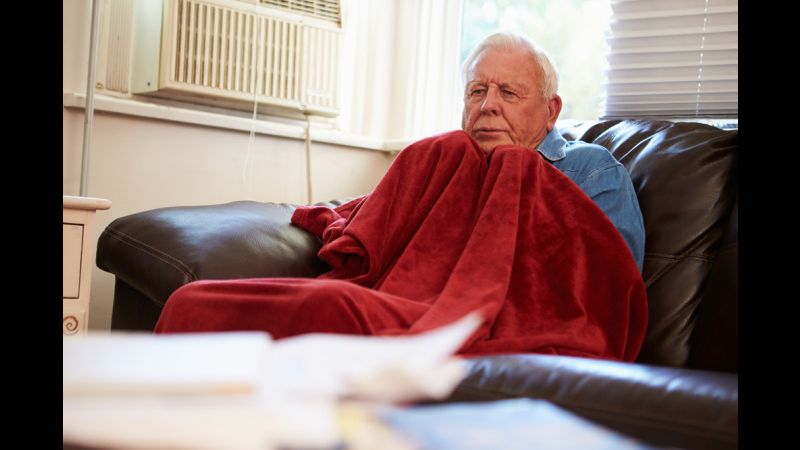While the view of soft, white snowflakes flurrying to the ground is a beautiful sight you can only see during the winter season, the freezing temperatures and debilitating storms that come along with those snowflakes can be much more problematic. Not only do these storms bring slippery snow and ice that increases one’s risk of falling, but they can also cause power outages that cause many difficulties for seniors and their loved ones.
Why Older Adults are Impacted the Most
How power outages affect older adults is a topic that is often overlooked, but in fact, they are impacted the most when the power goes out in their homes. Power outages are much more than an inconvenience – they can directly impact your health!
Probably the biggest reason why power outages affect older adults is because without a heated home, they are much more susceptible to hypothermia. As we age, it becomes more difficult for our bodies to keep a regulated temperature and to sense cold. Medications, including antidepressants and pain medications, and health conditions, such as Parkinson’s disease, stroke and even poor nutrition, can also increase one’s risk of hypothermia.
Three of the most common signs of hypothermia according to Mayo Clinic are drowsiness, slurred speech and disorientation, so be sure to be on the lookout for any of these signs.
However, older adults aren’t the only ones who have to be wary of power outages. For those families with infants or those suffering an illness, it might be best to leave the home – after all, you’re never sure if the power outage will last a few hours or a few days.
Don’t be Left in the Dark!
When considering how power outages affect older adults, it’s important to note that it is often difficult for them, especially those with limited mobility, to make all the necessary precautions. Enlist the help of a family member, caregiver, or a trusted neighbor to help you prepare and check in on you should a power outage occur.
Here’s a list of essential items you should keep in your home at all times, especially in the long winter months:
- Bottled water. Staying hydrated is essential all year round, especially in a power outage.
- Canned food. Keep in mind any dietary restrictions or requirements.
- Blankets and warm layers. It’s important to have plenty of blankets around during winter, and close off rooms you don’t need to help keep warm.
- Supply of medications. Driving on snow-covered roads can be risky, so keep an emergency supply of all your medications along with a first-aid kit handy.
Prepping for a power outage is only the first step, however. Follow these safety tips from Ready.gov during a power outage:
- To prevent accidental fires, use flashlights instead of candles for lighting.
- Keep the refrigerator and freezer doors closed to preserve the food inside. Most food will remain cold for four hours in a refrigerator and for 48 hours in a freezer.
- Dress warmly – both inside and outside. It may seem silly, but wearing a hat indoors will help keep you warm in a power outage. Remember: burning charcoal indoors for heat or cooking purposes is dangerous.
- Don’t be afraid to leave your home. If the storm gets really bad, stay at a loved one or friend’s home. It’s best to make these arrangements before a storm hits.
In addition to these tips, it’s important that you consume the necessary nutrients that will help you combat Vitamin D deficiency this winter.

